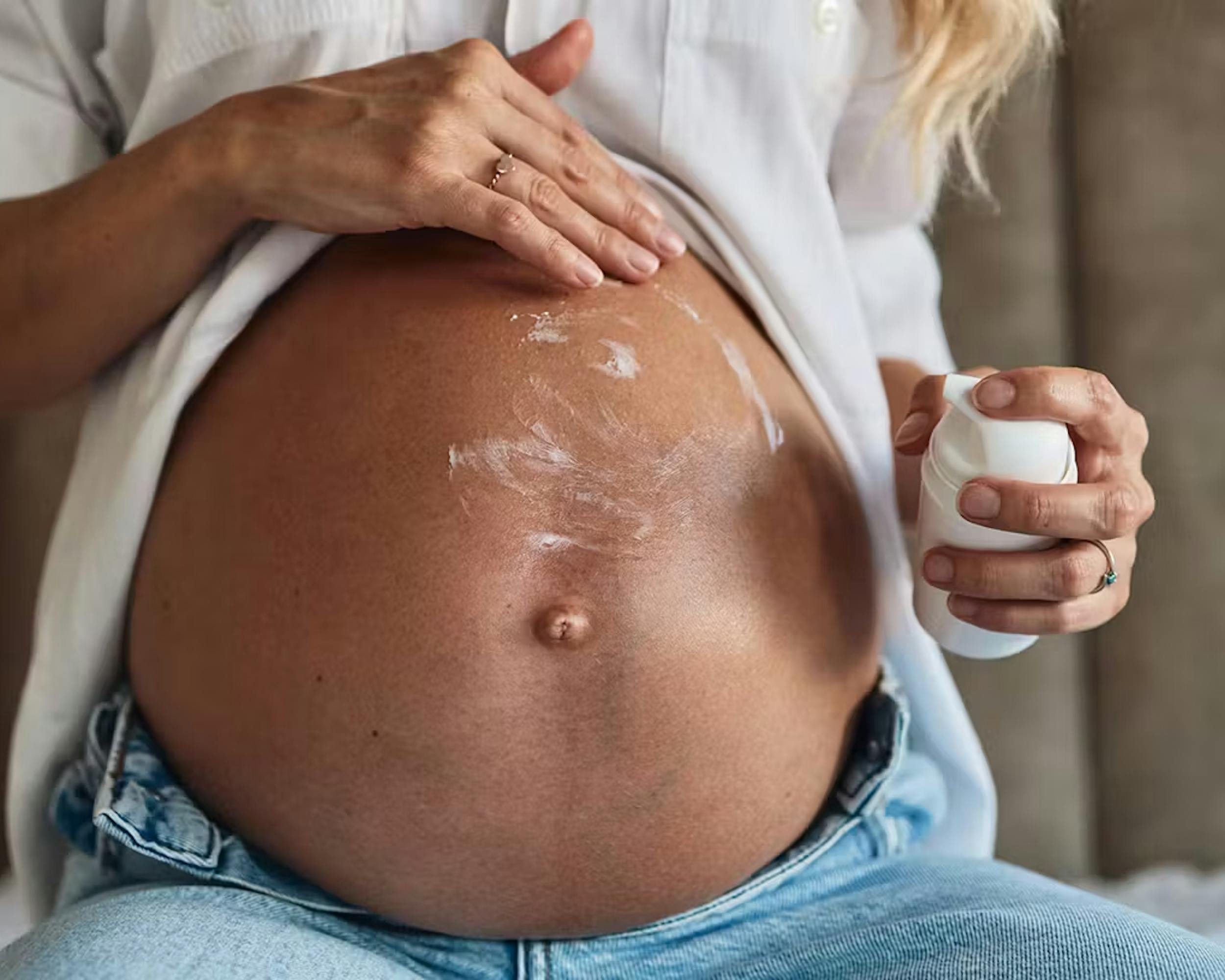0 minute read
How to Build a Pregnancy Skincare Routine
That pregnancy glow isn't guaranteed. Dermal Therapist Yadira Cauchi talks us through typical pregnancy skincare concerns, ingredients to avoid, and changes to make to your skincare routine.
FALLING PREGNANT IS A WILD TIME FOR ANY WOMAN - EMOTIONALLY, PHYSICALLY, HORMONALLY - AND DON´T GET ME STARTED ON THE MORNING SICKNESS
So if you’re stuck in a vicious cycle of nausea that lasts all day long, it’s totally understandable for skincare to likely be the last thing on your mind. (There are honestly moments in life— and parenthood— that just call for your standards to be lowered and the first trimester is one of them.)
However, as someone who is currently pregnant with their fourth baby, can I just say that even if all you can do is muster the energy to eat Jatz crackers, water and pretty much nothing else - your complexion will probably take a hit.
So while it may seem like a lot of effort, a little effort on a pregnancy skincare routine can do a world of good to provide a little pep me up - and it doesn’t even need to be that hard.
So let’s chat through a few products and ingredients that might be handy during your nine month pregnancy - as well as how to address some common skin issues that might pop up.
THE PREGNANCY GLOW MYTH
You see, falling pregnant does not always = a “pregnancy glow”. In fact, for many different women falling pregnant can actually = skin concerns like hormonal acne, increased pigmentation/melasma and skin sensitivities.
The good news? It’s temporary. Your skin may also feel extra dry or dehydrated thanks to your changing hormones so as a Dermal Therapist, I am always reminding clients to not be scared to switch up their skincare products to help treat their changing skin.
A lot of people may need entirely new skincare products and ingredients completely! And FYI— there are a few ingredients you do need to avoid during pregnancy.
SKINCARE INGREDIENTS TO AVOID DURING PREGNANCY
+ Vitamin A - Evidence suggests prescription retinoids like accutane pose a risk of birth defects, so the blanket medical recommendation is to avoid vitamin A altogether during pregnancy.
+ Hydroquinone - During pregnancy, it's recommended to avoid this skin lightening agent that's otherwise beneficial for treating certain skin concerns like melasma (human research is limited due to obvious ethical limitations, however studies on animals have shown it may have adverse effects).
+ Salicylic acid - High doses of this ingredient in its oral form have been shown to cause pregnancy complications. Doctors generally advise salicylic acid in strengths up to 2 per cent in skincare products is OK, but some may prefer to avoid it altogether.
As always if you're concerned, it’s always best to chat through your skincare with your doctor.

SO WHAT SHOULD A PREGNANCY SKINCARE ROUTINE LOOK LIKE?
The most important thing for most pregnant women to remember is to be gentle.
For some, their skin will remain the same, however most women can and do experience increased skin sensitivities, so it’s best not to try and throw too many active skincare ingredients at it while vitamin A is off the cards.
Your skin probably won’t react the way it normally would, and you need to listen and switch up your skincare as you need.
A QUICK NOTE ON THE STRETCH MARKS
Body hydration is also equally important as stretch marks are also a common skin concern for women.
However, it’s important to remember that in many cases these are unavoidable and there is no magic cream to get rid of them as they often have a genetic component to them.

Finally, a lot of women tend to stop their skincare treatments during pregnancy and there honestly is no need!
Injectables and laser treatments are obviously out, however light chemical peels without ingredients like salicylic acid and vitamin A are fine, as are skin needling treatments without numbing cream.
Additionally, many clinics will offer pregnancy safe alternatives to certain treatments - and these will help your skin in the long run! So never be afraid to ask.
Yadira Cauchi
Dermal Therapist
Share